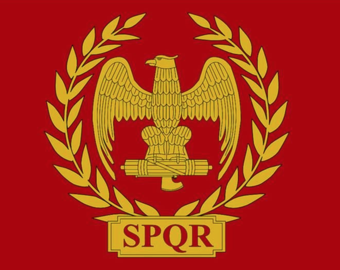Julian II
Emperor of Roman empire | Royal
Lived from 331 CE to CE 363
Julian IIwas Roman Emperor from 361 to 363, as well as a notable philosopher and author in Greek. His rejection of Christianity, and his promotion of Neoplatonic Hellenism in its place, caused him to be remembered as Julian the Apostate in Christian tradition. Julian was the son of Constantius Gallus and made Caesar by his own father's murderer, Constantius II. Constantius then assigned him an army and sent to suppress yet another German invasion. Upon the successful completion of this task, however, his own soldiers promoted him to the rank of Augustus. Chafing still from his father's fate he was well-prepared to meet Constantius in battle. But the battle was never meant to be because Constantius died of an illness en route and he was able to rule uncontested. Reversing the growing momentum of Christianity within the empire, Julian attempted to bring back the old pagan gods and its rituals. Again, it can be suspected that this was done as much out of personal conviction as to his efforts in countering the legacy of the Constantines who decimated his family. Taking his army to deal with a new round of Persian invasions, however, left him little time to dwell on eradicating Christianity. He died in 363 from a javelin wound fighting the Persians.
Subject ID: 123590
MoreLived from 331 CE to CE 363
Julian IIwas Roman Emperor from 361 to 363, as well as a notable philosopher and author in Greek. His rejection of Christianity, and his promotion of Neoplatonic Hellenism in its place, caused him to be remembered as Julian the Apostate in Christian tradition. Julian was the son of Constantius Gallus and made Caesar by his own father's murderer, Constantius II. Constantius then assigned him an army and sent to suppress yet another German invasion. Upon the successful completion of this task, however, his own soldiers promoted him to the rank of Augustus. Chafing still from his father's fate he was well-prepared to meet Constantius in battle. But the battle was never meant to be because Constantius died of an illness en route and he was able to rule uncontested. Reversing the growing momentum of Christianity within the empire, Julian attempted to bring back the old pagan gods and its rituals. Again, it can be suspected that this was done as much out of personal conviction as to his efforts in countering the legacy of the Constantines who decimated his family. Taking his army to deal with a new round of Persian invasions, however, left him little time to dwell on eradicating Christianity. He died in 363 from a javelin wound fighting the Persians.
Subject ID: 123590
Subject ID: 123590
